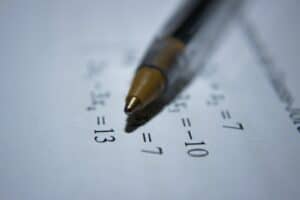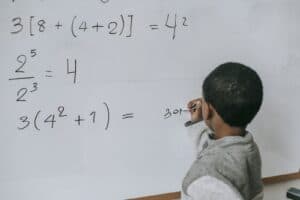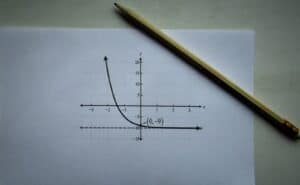The Math GED test is an essential component of the General Educational Development (GED) program, which is designed to measure high school-level academic skills and knowledge. For many individuals, passing the Math GED test is a critical step towards obtaining a GED certificate, which can lead to better job opportunities and higher education prospects. However, the Math GED test can be challenging, especially for those who struggle with math concepts or have been out of school for some time. How to study for math GED test?
Therefore, it is essential to prioritize preparation for the Math GED test to increase the chances of success. Adequate preparation involves reviewing the test content, identifying individual weaknesses, creating a study plan, using effective study techniques, and practicing Math GED test questions. In addition, it is crucial to address any anxiety or stress associated with the test and seek additional support and resources if needed.
Reviewing the Math GED Test Content

Before starting to study for the Math GED test, it is essential to understand the test content and format. The Math GED test includes four main areas:
- Number operations and number sense, which involves understanding the basic principles of arithmetic, such as addition, subtraction, multiplication, division, and fractions.
- Measurement and geometry, which includes knowledge of basic geometric shapes, such as triangles and rectangles, as well as measurement concepts, such as area, perimeter, and volume.
- Data analysis, statistics, and probability, which involves interpreting graphs and charts, understanding probability concepts, and calculating statistics.
- Algebraic concepts, which includes understanding equations, inequalities, and functions, as well as solving basic algebraic equations.
The Math GED test format consists of 46 multiple-choice questions that must be answered in 115 minutes. The test may also include some fill-in-the-blank and drag-and-drop questions.
Once you understand the test content and format, you can begin to focus on studying the specific topics and concepts that will be covered on the Math GED test. It is essential to create a study plan that covers all the test areas and allows enough time for practice and review. By reviewing the Math GED test content, you will be better prepared to succeed on the test and obtain your GED certificate.
Identifying Your Math GED Test Weaknesses
One of the most crucial steps in preparing for the Math GED test is identifying your individual weaknesses. This involves assessing your math skills and knowledge to determine which areas require the most attention and practice. There are several ways to identify your Math GED test weaknesses:
- Take a practice Math GED test: Practice tests are excellent tools for identifying areas of weakness. They simulate the real test and provide a score report that highlights your strengths and weaknesses.
- Review your high school math coursework: If you have a high school diploma, reviewing your math coursework can help identify areas of weakness. Focus on topics that you struggled with in the past.
- Self-assessment: You can also self-assess by taking notes during practice problems or reviewing math concepts on your own. Take note of the concepts that you find difficult or confusing.
Once you have identified your weaknesses, create a study plan that addresses those areas. Spend more time practicing problems and reviewing concepts that you struggle with. Seek help from teachers, tutors, or study groups if necessary. By identifying your Math GED test weaknesses, you can create a targeted study plan that maximizes your chances of success.
Creating a Study Plan for Math GED Test

Creating a study plan is an essential step in preparing for the Math GED test. It helps you stay organized and focused on your goals while providing a roadmap to success. Here are some steps to follow when creating a study plan for the Math GED test:
- Determine your study schedule: Decide how many hours a day or week you can dedicate to studying for the Math GED test. Consider your other responsibilities, such as work or family commitments.
- Set realistic goals: Set goals that are achievable and realistic. Break down your study plan into smaller, manageable tasks to avoid feeling overwhelmed.
- Prioritize your study material: Focus on areas of weakness and prioritize those topics in your study plan. Ensure that you cover all the test areas and allow time for review.
- Use different study materials: Use different study materials such as textbooks, online resources, and practice tests to help you understand the test content better.
- Practice, practice, practice: Practice problems are essential to understanding the Math GED test. Spend time doing practice problems to build confidence and identify areas for improvement.
- Take breaks: Taking regular breaks is important to prevent burnout and improve retention. Consider taking a short break every hour or two to refresh your mind.
Remember that the study plan is a guide and can be adjusted as needed. Regularly reassess your progress and make adjustments to your study plan as necessary. By creating a comprehensive study plan, you can be better prepared to succeed on the Math GED test.
Effective Math GED Test Study Techniques
Studying for the Math GED test can be challenging, but there are several effective techniques that can help you prepare for the test. Here are some study techniques that can help you master the Math GED test:
- Learn the fundamentals: Math builds upon itself, so it’s essential to understand the basic concepts before moving on to more advanced topics. Take the time to review and master the fundamentals before moving on to more challenging topics.
- Use mnemonics: Mnemonics are memory aids that help you remember complex information. Use them to help you remember formulas, equations, and other math concepts.
- Practice with real-world examples: Real-world examples help you understand the practical applications of math concepts. Look for real-world examples in everyday life, such as budgeting or measuring ingredients when cooking.
- Focus on problem-solving strategies: Math is all about problem-solving, so it’s essential to develop problem-solving strategies. Learn different strategies for approaching problems, such as using diagrams, breaking down problems into smaller parts, and using trial and error.
- Review and revise: Regularly review and revise the math concepts you’ve learned. Practice problems, take practice tests, and seek feedback from tutors or teachers.
- Seek help when needed: Don’t be afraid to ask for help when you need it. Reach out to teachers, tutors, or study groups for assistance with difficult concepts or problems.
By using these effective math GED test study techniques, you can improve your understanding of math concepts and increase your chances of success on the test.
Practice Math GED Test Questions

Practice makes perfect, and this applies to studying for the Math GED test. To improve your chances of success on the test, it’s essential to practice with Math GED test questions. Here are some resources for finding practice Math GED test questions:
- Official GED Practice Test: The official GED Testing Service offers a practice test that includes questions from the Math GED test. This practice test is designed to simulate the real test and can be a valuable resource for preparing for the exam.
- GED Study Guides: There are many study guides available that include Math GED test questions. These study guides are designed to help you prepare for the test by providing practice problems, explanations, and tips.
- Online Math GED Test Prep Courses: Many online courses specialize in preparing students for the Math GED test. These courses can be helpful in providing structure and guidance as you prepare for the exam.
- Tutoring: Consider working with a tutor who specializes in Math GED test prep. A tutor can provide one-on-one guidance, help you identify your strengths and weaknesses, and provide personalized feedback.
- Free Online Resources: There are many free online resources that offer Math GED test questions. Some examples include Khan Academy, Mathway, and Mathhelp.com.
By practicing Math GED test questions, you can familiarize yourself with the format of the test, identify areas where you need improvement, and gain confidence in your math skills. Remember, the more you practice, the more prepared you’ll be on test day.
How to study for math GED test? Tips for Overcoming Math GED Test Anxiety
Test anxiety is a common issue that many people experience. If you’re feeling anxious about taking the Math GED test, don’t worry. Here are some tips to help you overcome your anxiety and perform your best on the exam:
- Prepare and Practice: One of the best ways to reduce test anxiety is to prepare and practice. The more prepared you are for the exam, the more confident you’ll feel going into it. Create a study plan and dedicate time to practice Math GED test questions.
- Stay Positive: Negative self-talk can increase your anxiety and decrease your confidence. Instead of focusing on your fears or doubts, try to stay positive. Remind yourself of your strengths and accomplishments, and tell yourself that you’re capable of passing the Math GED test.
- Manage Stress: Stress can make test anxiety worse. Try to manage your stress levels by practicing relaxation techniques such as deep breathing, meditation, or yoga. Additionally, make sure to get enough sleep and exercise regularly to help manage stress.
- Visualize Success: Visualization can be a powerful tool to help reduce test anxiety. Close your eyes and visualize yourself successfully completing the Math GED test. Imagine yourself confidently answering questions and achieving a passing score.
- Take Breaks: It’s important to take breaks during your study sessions and on test day. Taking breaks can help you relax and recharge, which can reduce your anxiety levels.
- Seek Support: Don’t hesitate to seek support from family, friends, or a mental health professional if you’re struggling with test anxiety. Talking to someone about your anxiety can help you feel less alone and more supported.
By following these tips, you can reduce your test anxiety and improve your chances of success on the Math GED test. Remember, the Math GED test is just one step on your journey to achieving your goals, and you’re capable of passing it with dedication and effort.
Sharpening Your Algebraic Abilities: A Strategic Approach

While the GED Math Test doesn’t require advanced algebraic proficiency, a solid grasp of foundational principles can significantly elevate your performance. Employ these strategies to conquer the algebraic challenges:
- Comprehensive Study Guides: Seek out GED Math study guides specifically tailored to algebraic concepts. These resources often offer step-by-step explanations, examples, and practice problems that mirror the test format. Working through these guides can help you master algebraic techniques efficiently.
- Utilizing Algebra in Real Life: Linking algebra to real-world scenarios enhances comprehension. Consider scenarios where algebraic concepts are applicable, such as calculating budgets, understanding patterns in data, or solving everyday problems. This approach nurtures a holistic understanding of algebraic functions.
- Algebraic Problem-Solving Strategies: Developing effective problem-solving strategies is paramount. Techniques like equation manipulation, substitution, and graph analysis can streamline your approach to algebraic questions. Practice applying these strategies to build confidence in your problem-solving abilities.
- Interactive Online Resources: Embrace interactive online platforms that focus on algebraic skills. These resources often offer immediate feedback, enabling you to identify and address weaknesses promptly. Online math forums and platforms like Khan Academy can be invaluable in refining your algebraic prowess.
Broadening Your Horizons: Beyond Algebra
While mastering algebra is instrumental in GED Math success, remember that the test encompasses multiple content areas. Strengthen your Mathematical Reasoning section by refining your ability to interpret data, analyze statistics, and tackle probability problems. Equally, maximize your performance in the Social Studies section by honing your reading and analytical skills.
Mastering GED Social Studies: A Holistic Approach
Beyond the mathematical challenges of the GED Math test, success in the Social Studies section is crucial for achieving a well-rounded GED score. Michael Brown, an experienced educator and GED expert, emphasizes the interconnectedness of subjects. By integrating your GED Math study guide with social studies resources, you enhance your understanding of historical and social contexts. Brown suggests exploring historical events through a mathematical lens, understanding data interpretation in historical contexts, and recognizing the impact of mathematical principles on societal developments. This cross-disciplinary approach not only enriches your overall GED preparation but also boosts your ability to navigate complex questions on the test day.
Strategic Calculator Usage: Maximizing Your Math Exam Performance

The calculator is a valuable tool in the GED Math exam, but wielding it strategically can significantly impact your performance. Understanding when to use the calculator and when to rely on mental calculations is key. Michael Brown advises learners to practice a variety of problems with and without a calculator to develop a sense of when each method is most efficient.
This approach not only saves time during the test but also ensures that you’re making the most of the calculator’s capabilities. Additionally, familiarize yourself with the specific calculator functions allowed in the GED Math test, avoiding any surprises on exam day. Brown recommends exploring online resources that simulate the calculator functions permitted in the test, allowing you to refine your calculator skills for optimal performance.
Tapping into Online Resources: Enhancing Your GED Prep
In the digital age, leveraging online resources is integral to effective GED Math prep. Explore interactive platforms like Khan Academy, where you can find tailored lessons, practice problems, and video tutorials covering GED Math topics. Michael Brown underscores the importance of participating in online forums and study groups to connect with fellow learners. Engaging in discussions and seeking clarification on challenging concepts fosters a collaborative learning environment.
Additionally, look for reputable websites and apps that offer GED Math practice tests to simulate the test environment and identify areas for improvement. By incorporating these online resources into your study routine, you not only expand your knowledge base but also gain valuable insights into diverse problem-solving approaches, ultimately contributing to a higher score on the GED Math test.
The Ultimate Victory: Achieving a Higher Score
As you refine your algebraic proficiency and navigate other content areas, your aim is to achieve a higher GED Math Test score. Every practice question, every algebraic problem solved, brings you closer to that goal. Approach the test day with confidence, armed with the knowledge that your hard work will be reflected in your results.
Remember, your journey to passing the GED Math Test is one of growth and empowerment. With determination, strategic study, and a firm grasp of algebraic concepts, you’re not just aiming to pass the GED—you’re aiming to excel and embrace future opportunities with open arms.
